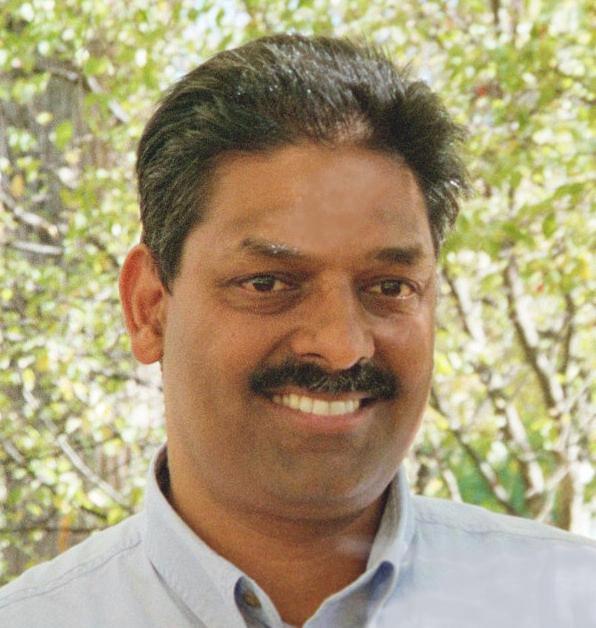 Prof. Sanjay Rajopadhye, Colorado State University
Prof. Sanjay Rajopadhye, Colorado State University
Half-day workshop in conjunction with
Denver, CO, USA
| 8:30 |
Opening remarks |
| 8:30-9:20 |
Keynote Talk: Prof. Sanjay Rajopadhye [webpage] Colorado State University DSLs and the Polyhedral Model: the origins, challenges and the future |
| 9:20-9:40 |
Robert Blake, Elsa Gonsiorowski, Thomas O'Hara and David F. Richards "Melodee: modular expression language for ordinary differential equation editing" |
| 9:40-10:00 |
Siddartha Ravichandran, Michael Brown, James Sutherland and Babak Goshayeshi "Progress with Nebo: a portable, performant EDSL for multiphysics applications" |
| 10:30-10:50 |
Maaz Bin Safeer Ahmad, Alvin Cheung and Shoaib Kamil "Using verified lifting to optimize stencil computations" |
| 10:50-11:10 |
Larisa Stoltzfus, Christophe Dubach, Michel Steuwer, Alan Gray and Stefan Bilbao "A modular approach to performance, portability and productivity for 3D wave models" |
| 11:10-11:30 |
Fabio Luporini, Michael Lange, Navjot Kukreja, Mathias Louboutin, Charles Yount, Jan Hueckelheim and Gerard Gorman "Optimised finite difference computation from symbolic equations" |
| 11:30-11:50 |
Laith Sakka, Kirshanthan Sundararajah and Milind Kulkarni "How to fuse general recursive tree traversals?" |
| 11:50-12:10 |
Jason Sewall and John Pennycook "High-performance code generation though fusion and vectorization" |
 Prof. Sanjay Rajopadhye, Colorado State University
Prof. Sanjay Rajopadhye, Colorado State University
Title: DSLs and the Polyhedral Model: the origins, challenges and the future
Abstract: While the polyhedral model has a rich, thirty year old history, its connection with Domain Specific Languages (DSLs) goes back even further. In this talk, I will first review this early connection, and illustrate how it nevertheless had a fundamental fatal flaw. I will then describe how it was resolved in 1989 by the language Alpha developed by Mauras, and then how reductions were added as first class elements (i.e., expressions) in the language by Le Verge (1994). However, today's polyhedral tools still cannot handle all aspects of reductions, in particular how to schedule and tile programs with reductions. I will describe why this is so, and present some very preliminary recent results that offer some hope.
Bio: Sanjay Rajopadhye is currently a professor in the Computer Science (CS) and Electrical and Computer Engineering (ECE) departments at Colorado State University. He was educated at IIT Kharagpur (B.Tech, 1980), and the University of Utah (PhD, 1986), and is one of the inventors of the polyhedral model, a mathematical formalism for reasoning about massively parallel, regular computations. His Ph.D. dissertation made three key contributions -- scheduling, locality, and closure -- to the foundations of the model. It was developed to address the design of early era "hardware accelerators" called systolic arrays, and is now used for automatic parallelization of affine control loops in many productions compilers. His main research contributions revolve around the polyhedral model: code generation, tiling, memory reuse analyses, and recently energy optimization.